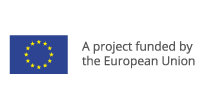Transparency of climate action: innovative tools showcased at the COP23
New tools to enhance Measurement, Reporting and Verification (MRV). A dedicated side event organized by the European Commission (EC) [DG NEAR / DG CLIMA] was held on Thursday 9th November at the COP23 in Bonn, Germany. It was a timely opportunity to discuss MRV, a key topic currently being negotiated to ensure transparency of climate action under the Paris agreement. “Today we understand that we cannot change what we cannot measure, what we cannot report, what we cannot verify” said Elena Višnar Malinovska, from EC/DGCLIMA. There is a clear need and opportunity for countries to share their respective efforts to establish MRV systems at such a critical time. She added : “While these countries have very different situations and starting points, many of the challenges they face in establishing MRV systems are similar. And we, the EU, face – or have faced in the past – many of these challenges”.
The European Union (EU) experience in the Enlargement and Neighbourhood countries. The EU and its Member States have broad MRV experience, and they provide ample support to third countries in building their domestic MRV capacity, within their bilateral engagements and through specific projects that support these relationships. Drawing on the expertise developed through supporting Enlargement and Neighbourhood countries, the event focused on new solutions which can potentially be replicated in other contexts. Information Matters, a project supported by Germany through the Gesellschaft für Internationale Zusammenarbeit (GIZ), illustrated the effective integration of private sector organizations in grenhous gas (GHG) inventories in Georgia and the associated development of a high-level strategy for the setup of an overarching MRV system for the country. The recent experiences were also examined from the implementation of two major EU-funded projects, the ClimaSouth project and the Regional Implementation of Paris Agreement Project (RIPAP). Collectively, the lessons learned highlighted some of the main challenges lying ahead, namely the involvement of state and non-state actors and their respective roles in managing MRV systems, the quality of GHG inventories, the potential replication of results achieved and international reporting obligations.
MISCA – Management & Information System for Climate Action. The architecture of a new climate action information system, presented at the event, targets line ministries engaged in the implementation of a country’s Nationally Determined Contributions (NDCs). Dario Berardi, ClimaSouth expert, stressed that : “the aim is to create a comprehensive and user-friendly tool, ensuring ownership of the data and quality of the information, that is flexible enough to adapt to evolving situations”. The information system is currently being demonstrated in Lebanon, in collaboration with the Lebanese Ministry of Environment (MoE), the Ministry of Energy and Water (MoEW), and the Lebanese Center for Energy Conservation (LCEC). Andrea Rizzo, ClimaSouth expert, concluded : “With the deadline for the completion of the Paris rulebook fast approaching (2018), it is crucial that countries share and learn from each other, for this will also help deliver on their prior commitments”.
Resources : Flyer & Poster of the event | |Video: Transparency of Climate Action |
Presentations: Information Matters | RIPAP | MISCA



